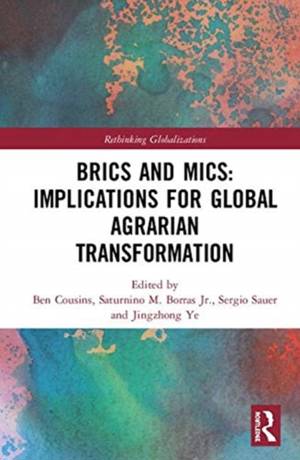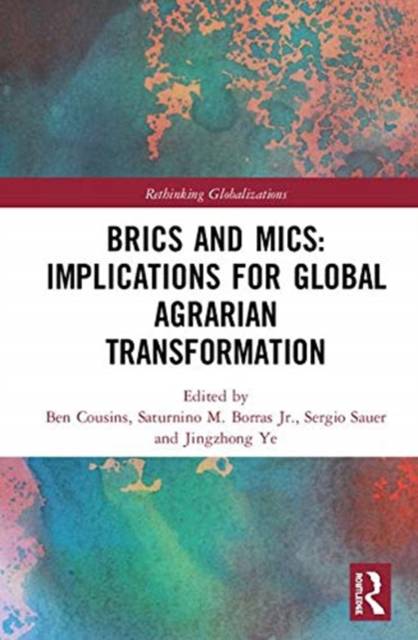
- Retrait gratuit dans votre magasin Club
- 7.000.000 titres dans notre catalogue
- Payer en toute sécurité
- Toujours un magasin près de chez vous
- Retrait gratuit dans votre magasin Club
- 7.000.0000 titres dans notre catalogue
- Payer en toute sécurité
- Toujours un magasin près de chez vous
Brics and Mics: Implications for Global Agrarian Transformation
Description
The economic and political rise of the BRICS countries (Brazil, Russia, India, China and South Africa), and powerful middle-income countries (MICs) such as Argentina, Indonesia and Turkey, has far-reaching implications for global agrarian transformation. These countries are key sites of agricultural commodity production, distribution, circulation and consumption and are contributing to major shifts in the character of agro-food systems.
This comprehensive collection explores these issues through the lens of critical agrarian studies, which examine fundamental social change in, and in relation to, rural worlds. The authors explore key themes such as the processes of agrarian change associated with individual countries within the grouping, the role and impact of BRICS countries within their respective regions, the role of other MICs within these regions and the rising importance of MICs within global and regional agro-food systems. The book encompasses a wide variety of case studies, including the expansion of South African agrarian capital within Africa; Brazil as a regional agro-food power and its complex relationship with China, which has been investing heavily in Brazil; the role of BRICS and MICs in Bolivia's soy complex; crop booms within China; China's role in land deals in Southeast Asia; and Vietnamese investment in Cambodia.
This book will be of interest to students and researchers of critical agrarian studies, with a focus on BRICS and MICs. It was originally published as a special issue of the journal Globalizations.
Spécifications
Parties prenantes
- Editeur:
Contenu
- Nombre de pages :
- 188
- Langue:
- Anglais
- Collection :
- Tome:
- n° 1
Caractéristiques
- EAN:
- 9780367132897
- Date de parution :
- 04-12-18
- Format:
- Livre relié
- Format numérique:
- Genaaid
- Dimensions :
- 189 mm x 246 mm
- Poids :
- 452 g

Les avis
Nous publions uniquement les avis qui respectent les conditions requises. Consultez nos conditions pour les avis.





